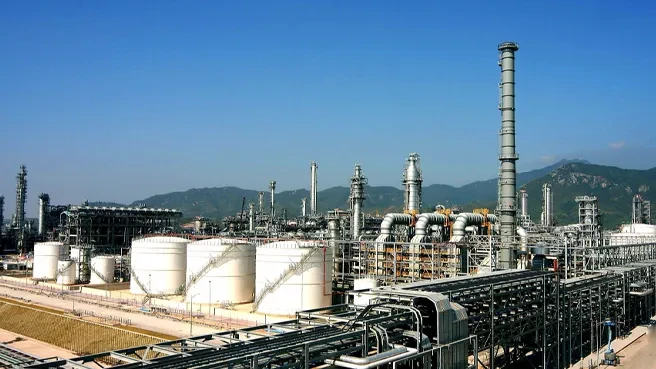
Exploring the Use of Preservatives in Milk and Dairy Products for Extended Freshness
Milk Preservatives Ensuring Safety and Quality in Dairy Products
Milk is one of the world’s most consumed beverages, celebrated for its nutritional value and versatility in various culinary applications. However, its perishable nature necessitates the use of preservatives to maintain its quality, safety, and shelf life. As we delve into the topic of milk preservatives, we will explore their importance, types, regulatory standards, and consumer perceptions.
The Importance of Milk Preservatives
Milk deteriorates rapidly due to the growth of microorganisms, enzymatic activity, and chemical reactions. Preservatives play a crucial role in extending the shelf life of milk and dairy products. They prevent spoilage, maintain flavor and nutritional qualities, and protect consumers from foodborne illnesses caused by pathogens. The right preservatives ensure that milk remains safe to drink and retains its appealing taste and texture.
Types of Milk Preservatives
There are several types of preservatives used in milk and dairy products, which can be broadly categorized into natural and synthetic options.
1. Natural Preservatives These are derived from natural sources and are often perceived as healthier and safer by consumers. Some common natural preservatives include - Salt Used primarily in cheese production to inhibit bacterial growth. - Lactic Acid Produced by fermenting milk, it lowers pH and increases acidity, deterring spoilage organisms. - Cultures Probiotic cultures are added to certain dairy products, enhancing flavor while naturally preserving them through fermentation.
2. Synthetic Preservatives These are chemically produced compounds that effectively prevent spoilage and extend shelf life. Some widely used synthetic preservatives include - Sodium Benzoate Commonly used in various food products, it is effective against yeast and bacteria. - Potassium Sorbate Known for its ability to inhibit mold growth, it is often added to flavored milk products. - Calcium Propionate Mostly used in baked goods, it is also applicable in some dairy contexts, particularly in cheese.
milk preservatives

Regulatory Standards
Regulatory bodies such as the Food and Drug Administration (FDA) in the U.S. and the European Food Safety Authority (EFSA) oversee the use of preservatives in food products, including milk. These agencies ensure that preservatives are tested for safety and efficacy before being approved for use. Each preservative has a specified acceptable daily intake (ADI) that protects consumers from any potential adverse effects. Compliance with these regulations is crucial for manufacturers to foster consumer trust and ensure the safety of their products.
Consumer Perceptions and Trends
In recent years, there has been a significant shift in consumer preferences towards natural foods. Many consumers are increasingly wary of synthetic preservatives, often associating them with health risks and artificial ingredients. This has prompted dairy manufacturers to explore natural alternatives or reformulate products to eliminate synthetic additives. Labels such as “no preservatives added” or “made with natural ingredients” have become attractive selling points for health-conscious consumers.
Moreover, the rise in plant-based alternative milk products has changed the landscape of dairy preservation. Many non-dairy milk substitutes, such as almond, soy, and oat milk, also require stabilization and preservation methods to maintain quality while catering to consumer expectations for clean-label products.
Conclusion
Milk preservatives play an integral role in ensuring the safety, quality, and longevity of dairy products. As the industry evolves in response to consumer demands and regulatory standards, the challenge remains to balance effective preservation with the growing trend towards natural ingredients. The future of milk preservation will likely involve innovative approaches that prioritize both safety and consumer preferences, appealing to wellness-oriented customers while reducing food waste in the dairy sector. Through ongoing research and development, the dairy industry can continue to adapt and thrive in a dynamic marketplace.
-
Buy High-Quality Trichloroisocyanuric Acid for Sale | TCCA 90% SupplierNewsAug.30,2025
-
Pure Sodium Dichloroisocyanurate Dihydrate | Powerful DisinfectantNewsAug.29,2025
-
Industrial Chemicals: Quality & Purity for Every IndustryNewsAug.28,2025
-
Nitrile Rubber Honoring Strict Production StandardsNewsAug.22,2025
-
Aspartame Ingredients Honoring Food Safety ValuesNewsAug.22,2025
-
Fertilizer for Balanced Plant NutritionNewsAug.22,2025
-
Cyanide Gold Processing with High Purity AdditivesNewsAug.22,2025
Hebei Tenger Chemical Technology Co., Ltd. focuses on the chemical industry and is committed to the export service of chemical raw materials.
-

view more DiethanolisopropanolamineIn the ever-growing field of chemical solutions, diethanolisopropanolamine (DEIPA) stands out as a versatile and important compound. Due to its unique chemical structure and properties, DEIPA is of interest to various industries including construction, personal care, and agriculture. -

view more TriisopropanolamineTriisopropanolamine (TIPA) alkanol amine substance, is a kind of alcohol amine compound with amino and alcohol hydroxyl, and because of its molecules contains both amino and hydroxyl. -

view more Tetramethyl Thiuram DisulfideTetramethyl thiuram disulfide, also known as TMTD, is a white to light-yellow powder with a distinct sulfur-like odor. It is soluble in organic solvents such as benzene, acetone, and ethyl acetate, making it highly versatile for use in different formulations. TMTD is known for its excellent vulcanization acceleration properties, which makes it a key ingredient in the production of rubber products. Additionally, it acts as an effective fungicide and bactericide, making it valuable in agricultural applications. Its high purity and stability ensure consistent performance, making it a preferred choice for manufacturers across various industries.





